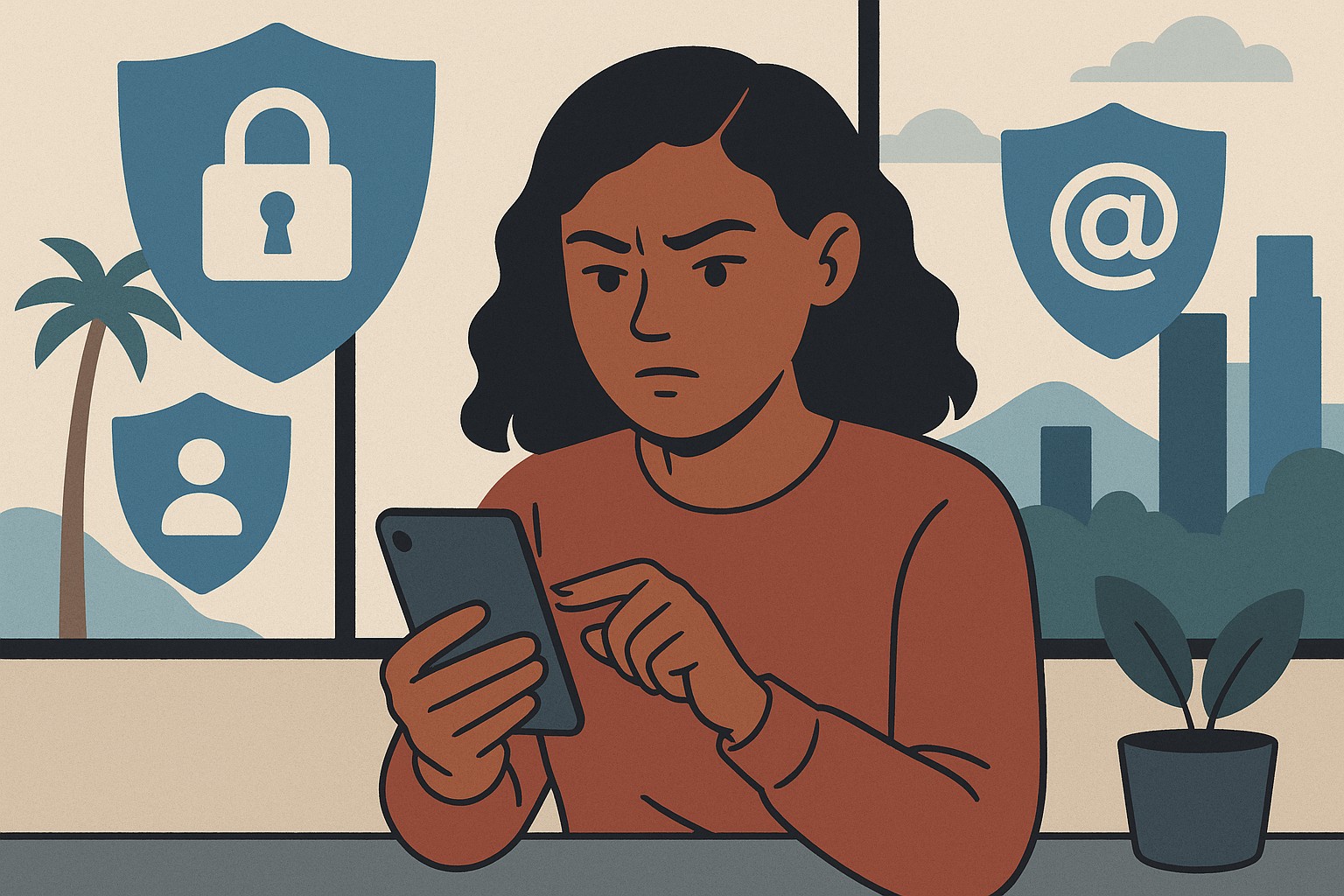Ultimate Digital-Safety Guide for Los Angeles Survivors: Securing Phones, Email & Social Media From Abusers
This guide provides essential, step-by-step advice for Los Angeles survivors on securing their phones, email, and social media accounts to protect themselves from digital abuse and harassment.

In Los Angeles, the journey of a survivor often involves not just physical safety, but digital safety. Abusers frequently use technology—from phones and email to social media—as a tool for control, surveillance, and harassment. Securing your digital life is a critical step toward rebuilding your privacy and independence. This guide provides essential, step-by-step advice for survivors in Los Angeles to reclaim their digital space from abusers.
1. Securing Your Phone: The First Line of Defense 📱
Your phone is often the most vulnerable device. An abuser may have installed spyware or simply know your passwords.
- Check for Spyware: Look for unusual app icons, a rapidly draining battery, or a hot phone when not in use. If you suspect spyware, the safest option is to perform a factory reset. Be aware that this will erase all data.
- Change All Passcodes and Biometrics: Change your phone's passcode to a strong, new one that your abuser could never guess. Reset biometrics like Touch ID or Face ID to ensure the abuser's fingerprints or face are no longer recognized.
- Review Location Sharing: Go into your phone's settings and turn off all location-sharing permissions, especially with apps that an abuser may have access to.
2. Locking Down Email & Other Accounts 🔒
Email is the gateway to all your other accounts. Gaining control of it is crucial.
- Create a New, Private Email: If you suspect your abuser has access to your current email, create a brand-new one from a different service. Do not use your abuser's phone or computer to create it.
- Change All Critical Passwords: Using your new email address, immediately change the passwords for all financial, social media, and online shopping accounts. Make sure to use strong, unique passwords for each one.
- Activate Two-Factor Authentication (2FA): This is the best defense against unauthorized access. 2FA requires a second code (sent to a trusted device) in addition to your password. This makes it almost impossible for someone to log in without physical access to your new, secure phone.
3. Taking Control of Social Media & Your Online Footprint 🌐
An abuser can use social media to track, harass, and control your narrative.
- Adjust Privacy Settings: Make all of your social media profiles private so only people you approve can see your posts.
- Block and Unfriend: Block your abuser and any of their friends or family who may be acting as flying monkeys. This prevents them from seeing your activity or messaging you.
- Erase Your Digital Tracks: Use a safe computer (at a library or a friend's house) and clear your browser's history, cookies, and saved passwords. This prevents an abuser from seeing which websites you've visited.
The Los Angeles Context: Legal and Community Support ⚖️
In Los Angeles, securing your digital footprint can be more than a safety measure—it can be a vital part of your legal case. Many legal aid organizations work with survivors to preserve digital evidence, such as text messages or emails that demonstrate coercive control or threats. By taking these steps, you not only protect yourself but also strengthen your ability to seek a Domestic-Violence Restraining Order (DVRO). You are not alone; countless resources in Los Angeles are available to help you navigate this process.
[object Object]
1. How can I tell if there's spyware on my phone?
Signs of spyware include a rapid battery drain, the phone getting unusually hot, unexplained data usage, or strange pop-up messages. If you suspect spyware, the safest course of action is to factory reset the device.
2. Is it better to delete my old accounts or just change the passwords?
It's often safer to change the passwords and privacy settings on your old accounts rather than deleting them, as old information may still be visible or recoverable. However, if the account is not essential, creating a new one is the best way to ensure total privacy.
3. What is Two-Factor Authentication (2FA) and why is it so important?
2FA is an extra layer of security. It requires a second code, usually sent to your phone or a separate app, to log in. This prevents an abuser from accessing your account even if they know your password.
4. What about a shared family computer?
If a computer is shared with the abuser, do not use it for anything personal or sensitive. Use a public library computer, a trusted friend's device, or a new phone. Always clear the browser history after each use.
5. Can digital evidence be used in a legal case?
Yes, digital evidence such as text messages, emails, photos, and even screenshots of online harassment can be crucial for obtaining a Domestic-Violence Restraining Order (DVRO) in a Los Angeles court.
6. Where can I get help with digital safety in Los Angeles?
Numerous organizations in Los Angeles offer assistance with digital safety. You can contact domestic violence hotlines, legal aid clinics, and community support centers for guidance and expert advice.
